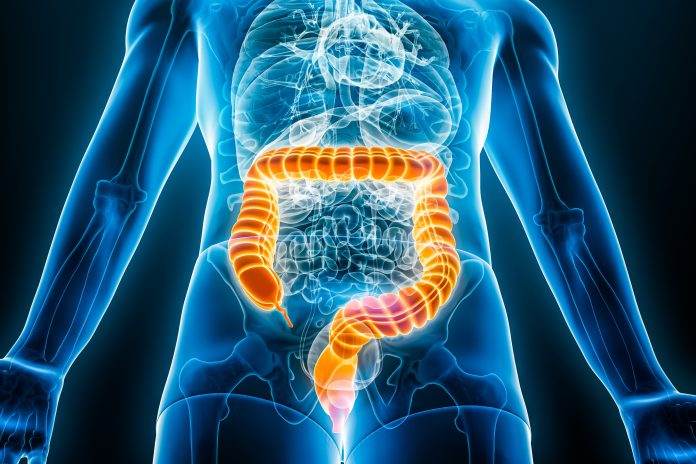Prof. Hartmut J. Ehrlich, MD, CEO of Abivax, explains why the Company’s drug candidate, obefazimod, has the potential to treat Inflammatory Bowel Diseases
Although progress has been made in recent years, there is still a high unmet medical need for safe short- and long-term effective therapies to treat Inflammatory Bowel Diseases. Prof. Hartmut J. Ehrlich, MD, CEO of Abivax, explains why the Company’s drug candidate, obefazimod, has the potential to address these needs and improve patients’ quality of life in the long run.
Why is there still an urgent need for new effective treatments for Inflammatory Bowel Diseases?
Finding a suitable and sustainable treatment remains challenging for patients suffering from IBD and is a process of trial and error that requires the testing of various drugs with often different related side effects. Using the example of ulcerative colitis, only 10-20% of patients experience a clinical remission with currently available treatments, and many of these patients stop responding after six or twelve months. Therefore, many of these
patients are left without valid treatment options that could provide relief other than colectomy. The medical need for new therapeutic options to control IBD durably and effectively remains very high.
What makes you believe that your drug candidate obefazimod could overcome the limitations of currently marketed treatments for Inflammatory Bowel Diseases?
Abivax’s lead drug candidate, obefazimod, is an anti-inflammatory small molecule currently in Phase 3 clinical development to treat ulcerative colitis.
To our knowledge, there is no other drug or drug-candidate in the inflammatory field which has a mechanism of action similar to the one of obefazimod. It is designed to specifically induce the intracellular production of a microRNA called miR-124, a potent anti-inflammatory agent.
A very recent publication in the journal “Clinical and Translational Gastroenterology” reports that obefazimod has the ability to upregulate miR-124 selectively, which leads to a downregulation of pro-inflammatory cytokines and chemokines, thereby “putting a brake” on inflammation. Thus, the molecule modulates the endogenous immune system to dampen inflammation and control the symptoms.
What differentiates obefazimod from other treatments for Inflammatory Bowel Diseases, and how could it change the treatment paradigm in ulcerative colitis?
As IBD are chronic lifelong diseases that, to date, cannot be cured, the objective of any treatment is to durably control the symptoms of the disease and allow patients to live a normal life. We believe that obefazimod has what it takes to address these needs. We observed a rapid onset of action, meaning a swift relief for the patients from their symptoms and, even more importantly, obefazimod has shown the potential to maintain this efficacy and to control the symptoms over time, thanks to its anti-inflammatory activity that I described above.
To illustrate why Abivax has high hopes in obefazimod, let me provide some of our Phase 2b clinical data. We included 252 patients across 17 different countries in the Phase 2b clinical trial for the treatment of UC patients. After the first 8 weeks of treatment, the induction phase, obefazimod met the primary endpoint of a statistically significant reduction in the Modified Mayo Score, the standard measure of disease severity, compared to the placebo group.
However, what was really important for us to see, were the results of patients after one year of daily oral treatment with obefazimod in the subsequent maintenance trial. Here, we observed a durable clinical remission in patients after the first year of treatment. I would also like to highlight that the molecule was observed to have a positive effect in patients refractory to conventional treatments and, even more important, also in patients with inadequate response, loss of response, or intolerance to advanced treatments such as biologics or JAK inhibitors.
Let me just give you some key numbers: Of the 222 patients who completed the Phase 2b induction trial, 217 patients, or 97.7%, participated in the subsequent open-label maintenance trial to evaluate the long-term safety and efficacy profile of obefazimod for up to two years. After the first year of 50 mg once daily oral administration of obefazimod, 119 patients, or 54.8% of all 217 patients enrolled in the maintenance trial were in clinical remission. Further, of the 124 patients with a clinical response after induction, 82 patients, or 66.1%, achieved a clinical remission in that same treatment period.
It is also essential to mention that the safety and tolerability profile of obefazimod was shown to be favorable within the induction as well as the maintenance treatments of our precendent clinical trials. As of November 2022, our most recent safety data cut-off, over 1,000 patients and healthy volunteers have been treated with obefazimod, of which more than 200 patients have been treated for at least one year, including over 150 patients who received treatment for two years or longer.
At Abivax, we are now very keen to see the patients’ outcomes after two years of continued dosing with obefazimod in the Phase 2b maintenance trial, and results will become available in the course of the second quarter of this year.
Based on our results and observations, we believe obefazimod has the potential to change the treatment paradigm in IBD, as patients suffering from chronic inflammatory diseases need treatments that 1) relieve them swiftly from their symptoms, 2) maintain their efficacy over time, 3) are safe and well tolerated and 4) are easy and convenient to administer.
Of note, our Phase 2b induction results were recently validated in a scientific article in the very renowned journal “The Lancet Gastroenterology & Hepatology”.
What is the clinical development status of obefazimod and what are your next milestones?
First of all, I would like to mention a very important milestone that Abivax achieved in February of this year: We completed an oversubscribed EUR 130M financing round with high-quality US and European biotech specialist investors. This financing will be crucial to advance the development of obefazimod at full steam.
With respect to the obefazimod clinical development plans, Abivax successfully launched a global Phase 3 program for the treatment of UC, the ABTECT program. It consists of two induction studies, ABTECT-1 and ABTECT-2, and patients who completed one of these induction studies can roll over into a single subsequent ABTECT maintenance trial to confirm the long-term safety and efficacy of obefazimod.
1,200 patients suffering from moderate to severe UC will be included in this program at 600 clinical trial sites across the globe, with the first patients enrolled in the US in October 2022.
With respect to our next development milestones in the ABTECT program, we expect the top-line results of the two induction trials to become available by the end of 2024 and the first results of the maintenance trial are expected by the end of 2025.

This work is licensed under Creative Commons Attribution-NonCommercial-NoDerivatives 4.0 International.








